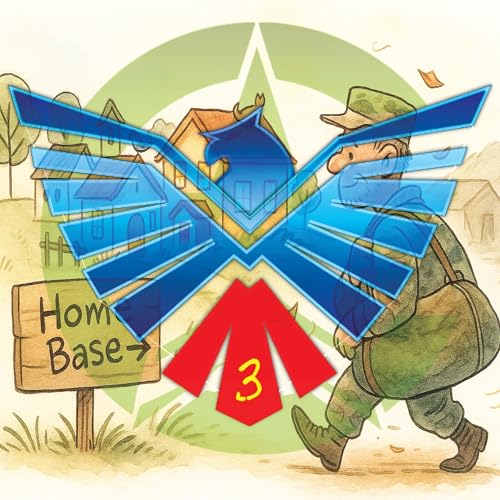
Season 3: Episode 16 - A Home Base
Failed to add items
Add to basket failed.
Add to Wish List failed.
Remove from Wish List failed.
Follow podcast failed
Unfollow podcast failed
-
Narrated by:
-
By:
About this listen
Veteran Homeless
Veterans face unique housing challenges that ripple through lives and families. In Michiana, the gap between need and available, affordable units is painfully real. This episode explores practical steps to find stable housing and rebuild the sense of home many of us carry with us from service.
We begin by laying out the common barriers: rising rents, credit challenges, lingering service-related injuries, and the mental health struggles that complicate steady employment and stable tenancy. Rural and urban landscapes create different roadblocks—transportation and isolation in smaller towns, competition and higher costs in cities. Transitional moments like ETS, post-deployment, and retirement are high-risk periods where small setbacks can become long-term instability.
Next we take a close look at local supports. Organizations like FreedomSystem.org and Mishawaka Troop Town work to connect Veterans to immediate shelter, case management, and community. Miller’s Veterans program at the South Bend shelter provides structured support that helps people regain footing, though funding, space, and staffing remain constant challenges.
We also offer practical actions. Veterans should connect with county VSOs and nonprofit case managers who know HUD-VASH, SSVF, and local voucher systems. Consider creative housing: shared homes, micro-housing units, and modular builds can provide quicker, affordable options. Family and support networks remain vital—sometimes the path to stability is a shared roof while benefits and income get sorted.
For property owners and neighbors, the episode outlines how small measures make a difference: flexible lease terms, willingness to accept alternative documentation, and partnering with local groups to vet applicants. Community volunteers can help with move-in assistance, furniture drives, and mentoring.
Finally, we reflect on what “home” means: it’s more than shelter. Home is routine, safety, dignity, and a place to reconnect with purpose after service. The episode closes with resources, encouragement, and a call to action: build bridges, not barriers, and help Veterans find a place to belong.
Listen, share, and join the conversation—because when a Veteran finds a home base, the whole community is stronger.
Additional practical tips:
Start with documentation: pull together DD-214, ID, proof of income, and any medical records that support disability claims. These documents speed up eligibility reviews for VA and local programs. If your credit report has errors, dispute them early; small clerical fixes can open rental doors.
Emergency funds and stabilization: SSVF and local charities can provide short-term payments for deposits and first month’s rent. Ask about budgeting help and connections to employment supports to reduce future risk.
Housing alternatives to explore: contact community land trusts, faith-based housing cooperatives, and nonprofit developers focused on affordable units. Shared housing networks, where Veterans rotate responsibilities, can reduce costs and build peer support. Tiny home villages and modular units are increasingly used as transitional or permanent solutions.
Longer-term strategies: work with VSOs to pursue service-connected benefit claims, apply for supportive housing like HUD-VASH, and enroll in employment or training programs tied to stable income streams. Advocate for local policy changes: inclusionary zoning, landlord incentives, and funding for supportive services.
Community involvement: volunteer at shelter programs, support fundraisers for local Veteran housing initiatives, and encourage local leaders to prioritize Veteran homelessness prevention. Landlords can partner with nonprofit case managers to mitigate perceived rental risks.
Closing encouragement: finding a home base takes teamwork. If you’re a Veteran, reach out—help is available. If you’re a neighbor or community leader, consider how small, concrete steps can change a life, and let's make a difference!


